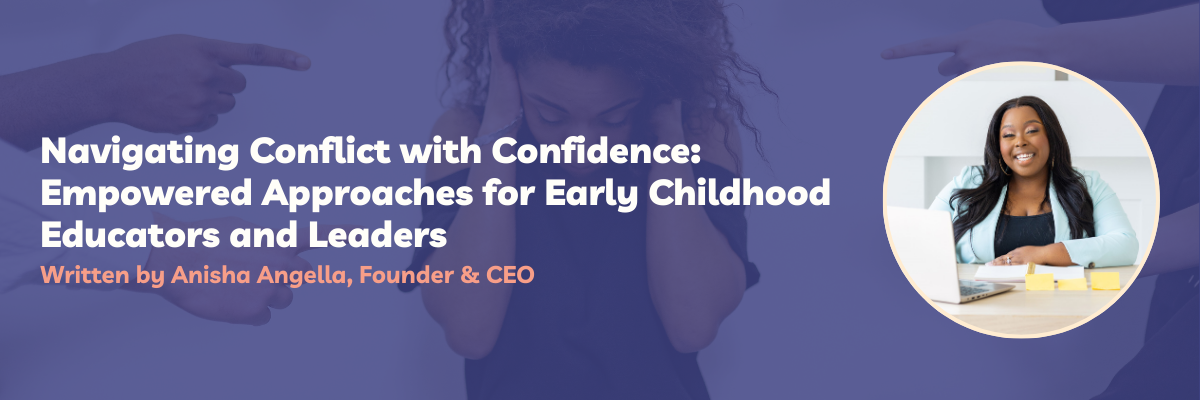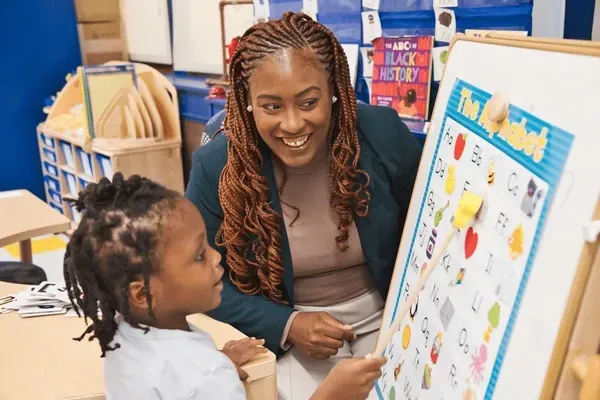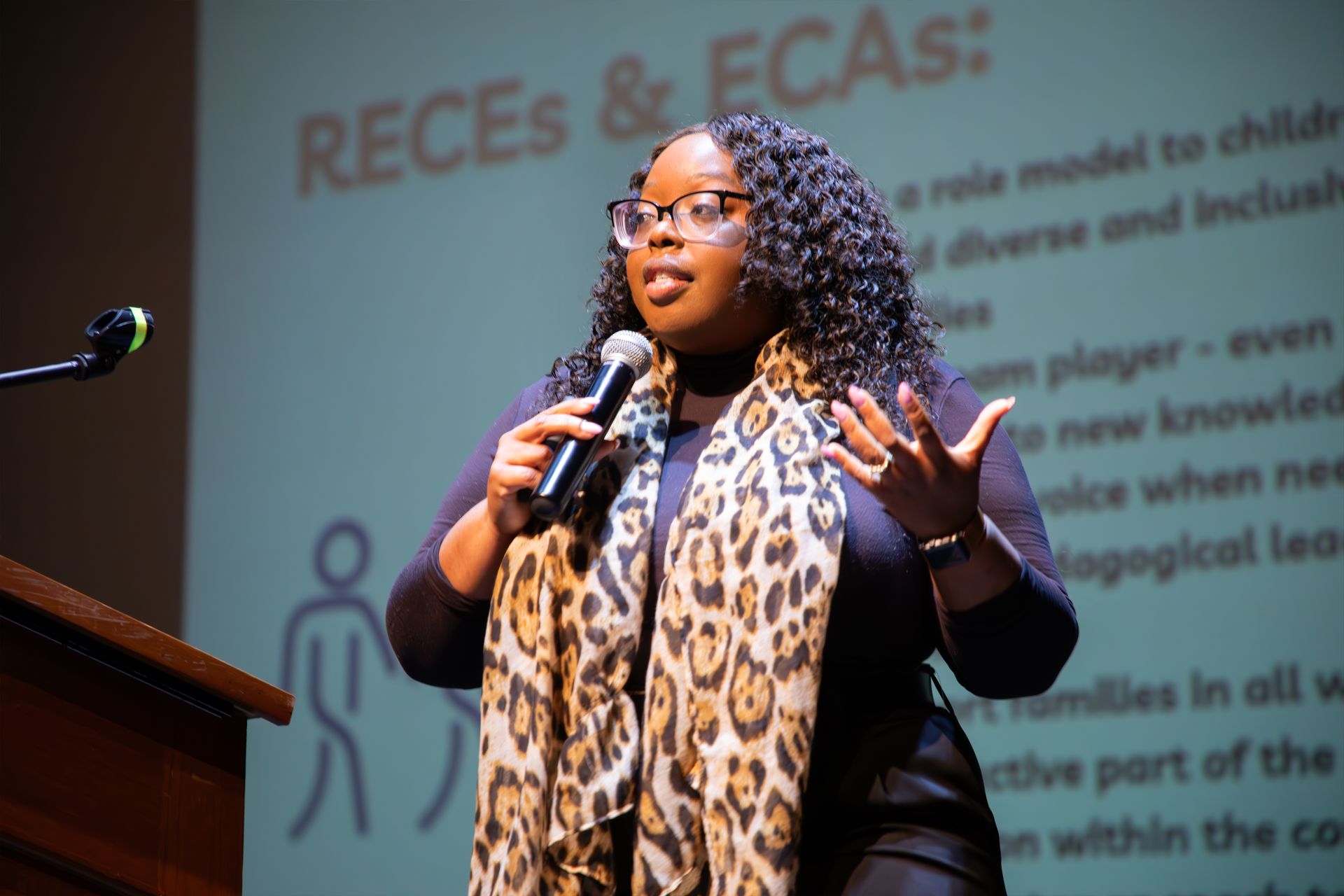Navigating Conflict with Confidence: Empowered Approaches for Early Childhood Educators and Leaders


Types of Conflict in Early Childhood Settings
1. Educator-to-Educator Conflict
Differences in teaching styles, communication breakdowns, or misunderstandings about responsibilities can create tension between colleagues. This is common — and manageable with open dialogue and shared goals.
2. Educator-to-Leader Conflict
When team members feel unheard or unsupported, or when leaders struggle to communicate expectations clearly, conflict may arise. These moments require self-awareness and strong emotional intelligence from both sides.
3. Educator-to-Parent Conflict
Misaligned expectations about a child's behavior, developmental progress, or classroom practices can lead to difficult conversations. Compassion and clear communication are essential here.
4. Internal Conflict
Don’t overlook the silent battle educators often face within themselves — self-doubt, burnout, or the emotional toll of the work. Managing this “conflict” is crucial for long-term sustainability in the profession.
Tips to Confidently Manage Conflict
1. Lead with Curiosity, Not Judgment
Ask yourself: “What might be going on beneath the surface?” Often, conflict is just a symptom of unmet needs, unclear communication, or unspoken values.
2. Set the Tone with Emotional Intelligence
Whether you’re leading a team or managing a classroom, your ability to stay grounded and regulate your emotions sets the tone for others. Practice active listening, take a breath before responding, and model respectful dialogue.
3. Use the “Pause and Reflect” Approach
When tension rises, it’s okay to pause the conversation. A short break can help all parties gather their thoughts and return to the conversation with more clarity and calm.
4. Be Clear, Kind, and Consistent
Whether you’re addressing a colleague or a parent, clarity matters. Say what you mean, mean what you say — and always lead with kindness.
5. Know When to Call In Support
You don’t have to manage conflict alone. Whether it's a mentor, supervisor, or a coach, having someone to help guide and mediate can lead to better outcomes for everyone.
Conflict as a Catalyst: From Challenge to Growth
Here’s the truth: Every challenge is an opportunity in disguise.
When we face conflict head-on — with heart and humility — we invite transformation. Leaders become more human. Teams become more united. Educators become more resilient. And the children we care for? They get to witness what healthy problem-solving and respectful communication really looks like.
So if you’re in the middle of a tough conversation, or anticipating one soon — know that you’re not alone. You’re doing courageous, important work. And your ability to lead through conflict doesn’t just make you a stronger educator — it makes you an agent of change.
Let’s Keep the Conversation Going
Have you ever navigated a conflict in your center that taught you a powerful lesson? What helped you manage it? Share your story with us or tag us on Instagram @theecc.community — we’d love to hear how you're leading with strength and empathy.





